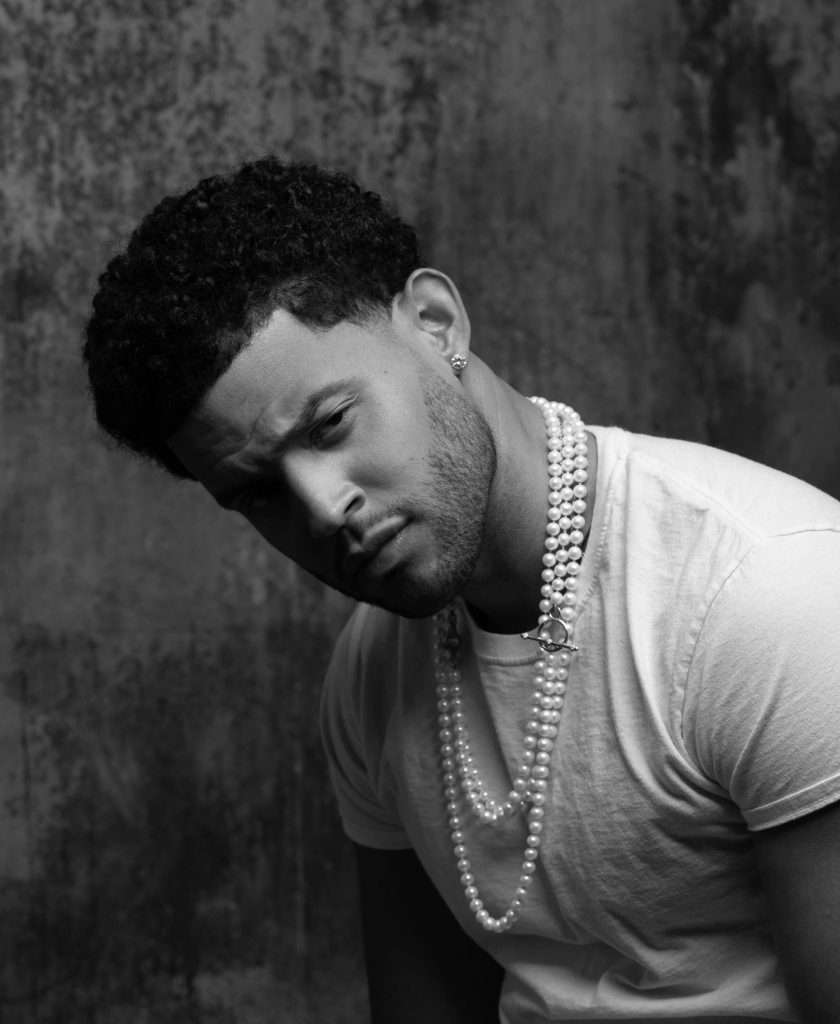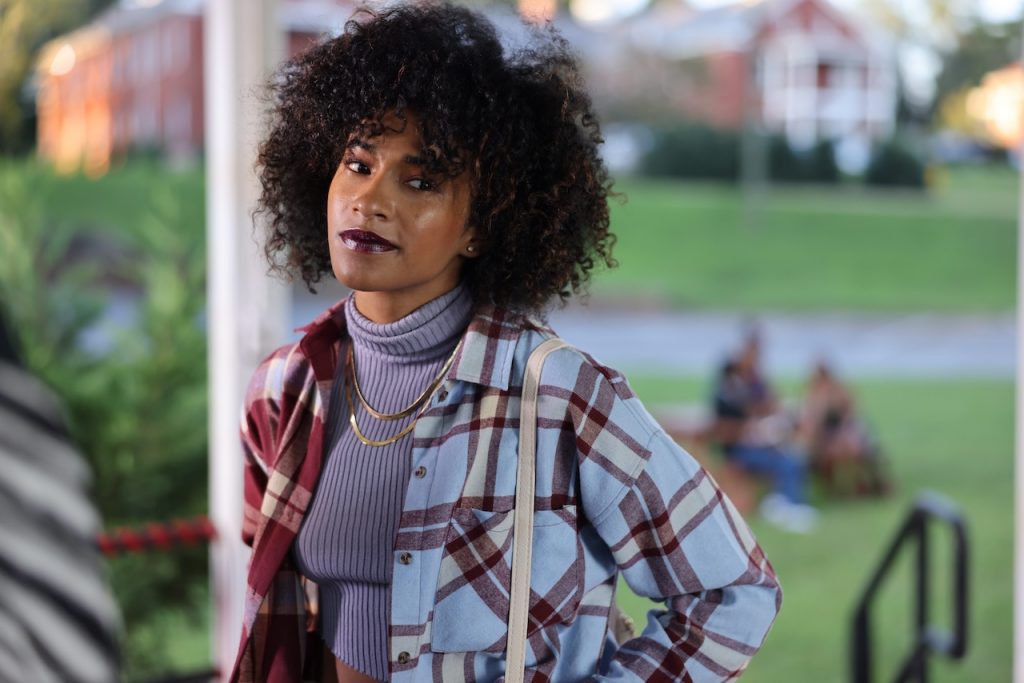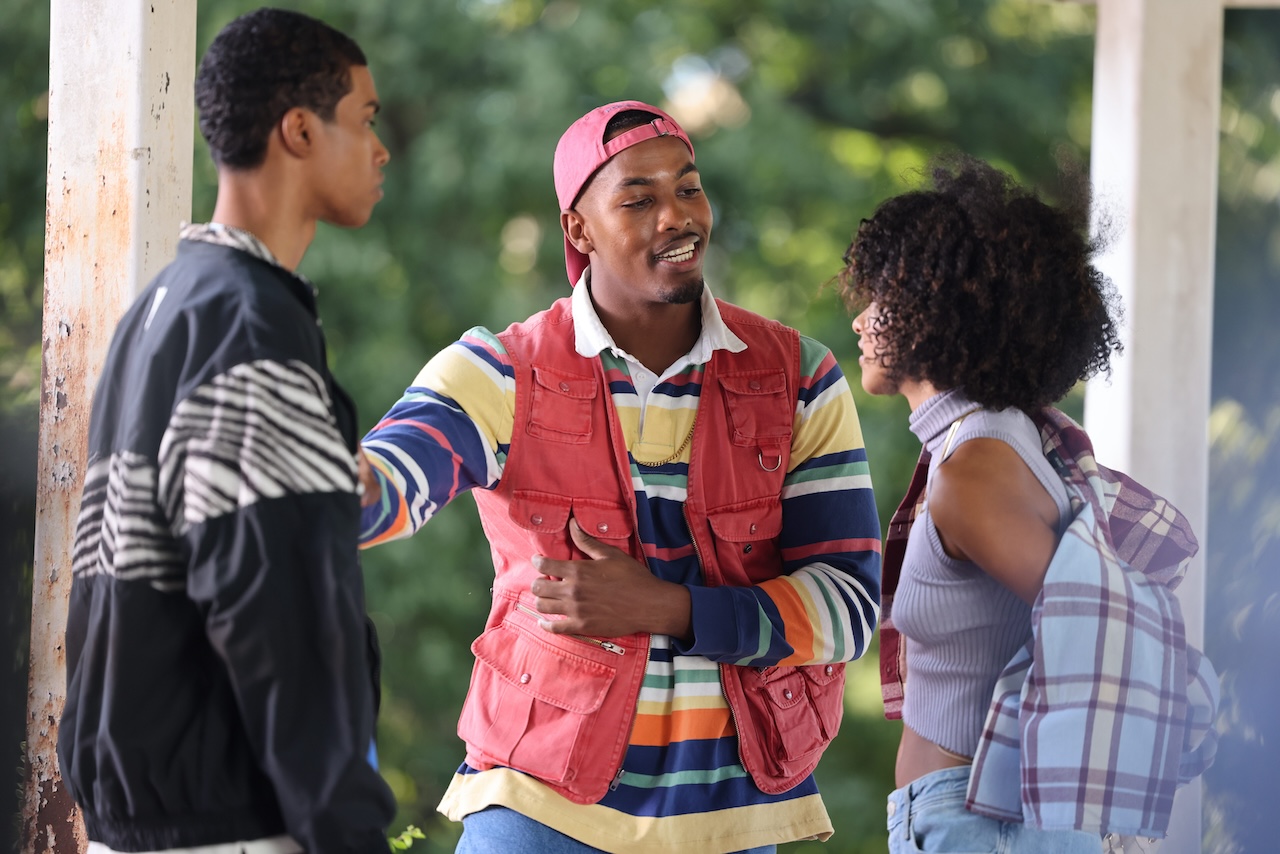“I felt we struck gold understanding that no TV series has ever specifically talked about this period of time in the 90s where Atlanta was forming itself into what it is today in terms of black governance,” states writer/ director/ producer Armani Ortiz about his TV series Perimeter. The whole country, not just Atlanta, Georgia was undergoing massive societal upheaval with the proliferation of Historically Black Colleges and Universities (Spelman College in this case), the insidious crack epidemic, and the Freaknik festival created a tumultuous environment for kids who had no other place to go during spring break.
The Olympics were coming to Atlanta in 1996 which finally put this often overlooked city on the world map. Then came the music which transformed Atlanta into a world class city full of culture and excitement.
Perimeter was ruminating in Ortiz’s mind for some time until he showed it to Tyler Perry who immediately responded to the material. “I felt like we hit the lottery. I hope that we do the city justice and I pray that people who lived in that era see themselves in the show. More importantly, I think that the story that we’re building is more about our decisions and choices as well as the humanity of our lives than Atlanta.”
Perimeter explores how we build our own prisons that we that lock ourselves in
Atlanta – A Specific Time And Place
Atlanta during the 1990s conjures up a special period in the city’s evolution. Perimeter wasn’t about just creating a period piece by infusing the story with pop cultural references to inspire nostalgia.
“Like time, period should be a character in your script. When you do it incorrectly, you do it with the wrong intentions, or seen as if you’re throwing things on the wall to get an audience to like it, it won’t work” adds Ortiz.
Perimeter was shot in Panavision using vintage Sam Cook lenses to capture the visual aesthetic of the time – with a bit more “sodium vapor.”

Armani Ortiz. Photo by Kayla Madonna
“As a writer, you have to understand that the visual texture affects the dialogue. It affects why people were making certain decisions. It shows what was going on in the world. Psychologically, it does something to your characters,” muses Ortiz.
Working With Tyler Perry
Armani Ortiz has been working with Tyler Perry’s studio in various capacities over the past ten years. “He’s taught me everything that I know when it comes to directing and storytelling. A director isn’t just someone that brings something to life off a page. He’s a leader of three, four or five hundred people on a given day on a set, and you have all these amazing kids’ dreams in your hand. And depending on how you are able to direct them, it can make or break their careers.”
Although Tyler Perry is credited as an executive producer on the series, Ortiz also credits him for giving him sufficient creative freedom to tell the story he wanted to tell. Without Perry, he may never had the chance to tell this kind of story.
“As a creative, there’s nothing you want more than having time at the playground so I can just do whatever I want, as opposed to going on the monkey bars now and then I’ll do this and then I’ll do that,” mentions Ortiz.
If we made a mistake, Tyler would allow us to make the mistake
Workshopping The Scripts
Tyler Perry was also a vital part of the script development process for Perimeter. There was a mini-room comprising Armani Ortiz, Tyler Perry, and Mark Swinton, Senior Vice President of Scripted Programming at Tyler Perry Studios.
“We went through an extensive workshop of the four scripts because initially, they were one-hour long. Then we decided to make them 30-minute digestible episodes,” recalls Ortiz. “In doing that, it forces you to go into a completely new draft because you want to now structure these stories and these acts in a different way.”
“When I sat down with Tyler Perry and Mark Swinton, we asked, ‘What does this character give to the story? Are they superfluous? Are they just doing something just to do it?” We were able to look at every single scene and ask, ‘How does this move the story forward?’”
There were instances when Perry and Swinton would comment, “I know that you think that this is good, but it’s not going to translate here, here, here and here.” It became a masterclass for Ortiz which allowed him to recognize that the best idea wins so long as his initial premise of why he built that world and characters remained intact.
“Allow yourself the freedom to take things and add things as it the show moves forward, because just like anything else, writing is a living, breathing piece of art. You have to allow yourself that discipline to allow yourself to be free.”
“When anyone challenges you in any of your writing, the first thing they ask is why a character is doing something. Someone didn’t perceive their motivation the way I did. Secondly, a particular character doesn’t push the story forward and takes away from another character.”
Armani often defended his story choices by pointing out that a scene shows a characters’ vulnerability in the situation. He was countered because he needed to look at the scene from a bigger lens to understand how a character is perceiving the situation of how they’re being treated. These nuances formed the basis for many fruitful discussions in the writers’ room.
Even after filming, the storytelling process continued in the editing room. Some scenes were shortened or omitted because they were too heavy-handed, the way the dialogue was delivered didn’t make sense in the character arc, or they were taking away from the momentum and flow of the edit.
Good Girl Is In Love With Bad Boy
The premise underpinning Perimeter is broadly familiar beyond the specificity of 1990s Atlanta. Paige Dawn (Ava Mone’t) is in love with drug dealer Malcolm (Malcolm Xavier). Her father, Councilman Robert Dawn (Donavan Christie Jr.) has political ambitions, and her mother, Connie (Tatyana Ali) is trying to do what’s best for her family.

Connie Dawn (Tatyana Ali) Phot courtesy of BET+ Networks
The “Bad Boy” is a relatable character most audiences identify with. “Being the bad boy has always been pseudo-glorified, not only in the black and the Latino community, but in the ‘James Deans’ in Rebel Without A Cause, the ‘Danny Zukos’ in Grease. They’ve been portrayed as being a rule-breaking, a rebel, and the apple of the eye when it comes to the ‘it girl,’ the person that you long for,” continues Ortiz.
“Perimeter is no different with Malcolm, but it focuses on the reasons why he’s bad. You start judging that character based on the decisions that he makes.” Ortiz cites an example from Grease to illustrate when Danny (John Travolta) pretends not to recognize and Sandy (Olivia Newton John) so he doesn’t appear lovestruck to his friends. “That’s when our opinion of Danny changes.”
“You don’t hate Danny because he races cars, because he wears a jacket, or because he smokes. You start hating him because of how he’s treating other people. It’s similar to when Malcolm starts treating Paige differently, despite him being very loving, and caring. Malcolm doesn’t want to be in the situation that he’s in. It’s a means to an end.”
As things get progressively worse, the audience is not angry at him because of the situation. And then in turn, Paige starts looking at her life and decides the relationship isn’t working for her anymore. There’s no indictment on what Malcolm is doing because she was fine with it up until that moment. It’s about now the character is now reacting in a different way. And when you write it as such, I think that the bad boy tropes fall by the wayside.”
The Dawn family asks how much are they willing to sacrifice, how much will they will put up with, and what’s they’ll compromise
How Did I Get Here?
Malcolm is a complex bad boy. “He is in a Walter White (Breaking Bad) situation, where he doesn’t want to be in the situation that he’s in, but he sees no other way around it. Could there have been another way? Absolutely, but maybe because of time, the situation, and responsibilities he takes a calculated risk even when things go awry.”
Malcolm is a very intelligent, bright young man who’s fully aware of the stakes. “When Johnathan (Jalen Gilbert) says, ‘Hey, we need to start doing other things, get some real money,’ he responds, ‘No, that’s the stupidest thing we could do. Let’s be safe, let’s stay local.’ Malcolm’s methodical. The worst thing that could happen to a methodical character is put him in a situation where they would go against what they would normally do.”
Malcolm is losing everything. He no longer has the trust of his brother. Everything is going awry, and he wonders how he got there despite it all being a culmination of his choices.
“Hopefully we’ll have the opportunity of many seasons to draw that out in the correct way as opposed to jumping into the drama of a situation and not the reasoning behind the situation,” ponders Ortiz.
Final Thoughts On Writing For Television
“You always want to leave the audience in the TV format wanting more. You have to understand the cards that you have in your hand, and methodically put them down scene by scene so that you give the audience just enough so they understand the character more.”
“But the audience can’t fully understand the character. As soon as an audience thinks that they know a character in and out in then you’re going to lose the audience,” concludes Armani Ortiz.
